Space

Educators and Parents, Sign Up for The Cheat Sheet
Weekly updates to help you use Science News Explores in the learning environment
Thank you for signing up!
There was a problem signing you up.
-
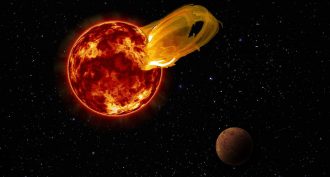 Planets
PlanetsFlared! How a planetary ‘neighbor’ may have been fried
Hoping for life on the planet our stellar neighbor Proxima Centauri? Don’t hold your breath. Its star may have sterilized its Earthlike exoplanet.
-
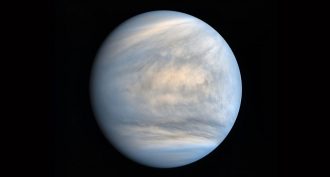 Planets
PlanetsHere’s why Venus is so unwelcoming
Venus is hard to study. Scientists also find it hard to get money to send spacecraft there. But researchers have ideas about how to tackle both challenges.
-
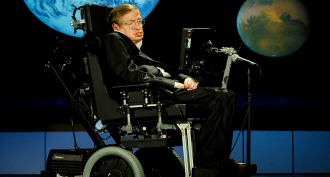 Science & Society
Science & SocietyLegendary physicist Stephen Hawking dies at 76
Theoretical research by Stephen Hawking helped shape how scientists and the public alike would come to understand black holes and other facets of astrophysics.
By Emily Conover and Janet Raloff -
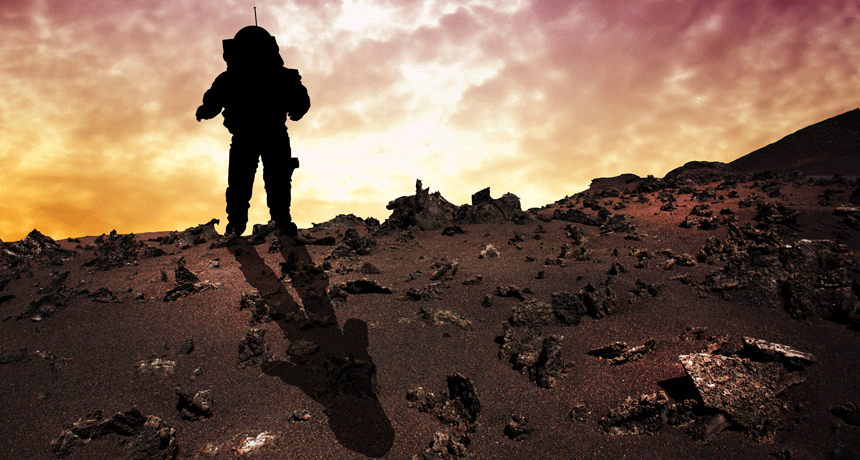 Space
SpaceEn route to Mars, astronauts may face big health risks
Going into space brings the thrill of a new frontier — and risks that scientists are racing to understand, from radiation to isolation.
-
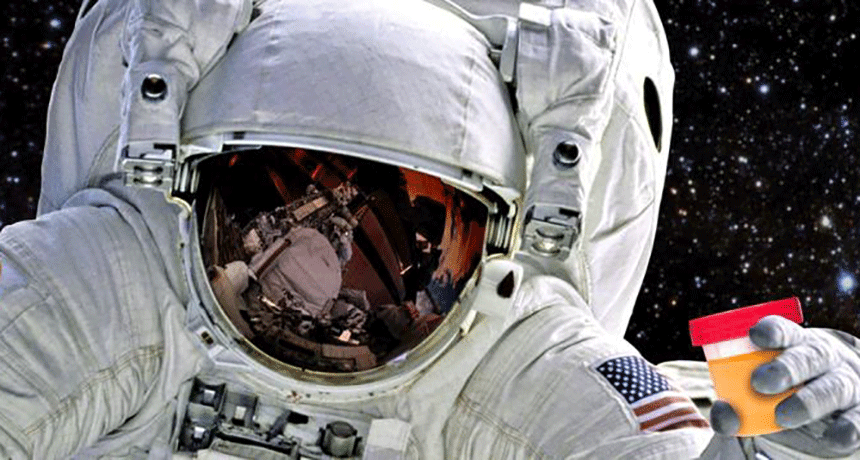 Chemistry
ChemistryHuman waste could power plastic-making in space
Someday recycled urine and exhaled breath could feed specially engineered yeast to make plastics and other useful chemicals on long space missions.
-
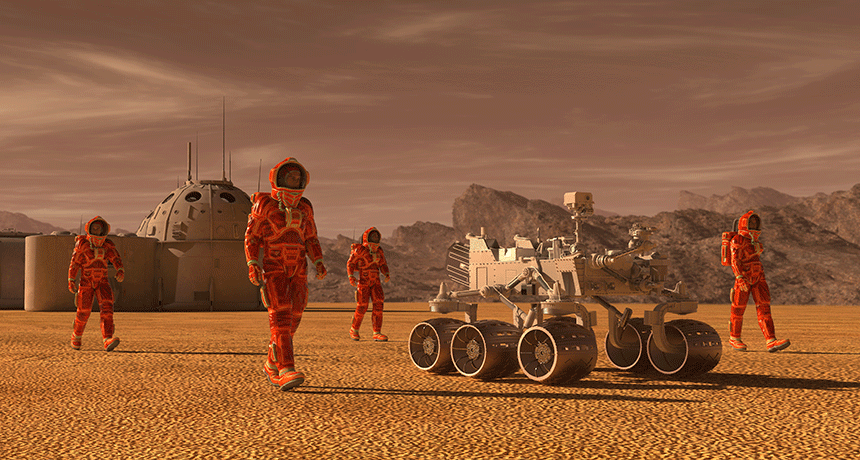 Space
SpacePreparing for that trip to Mars
These scientists are working to make a human mission to Mars a reality.
By Ilima Loomis -
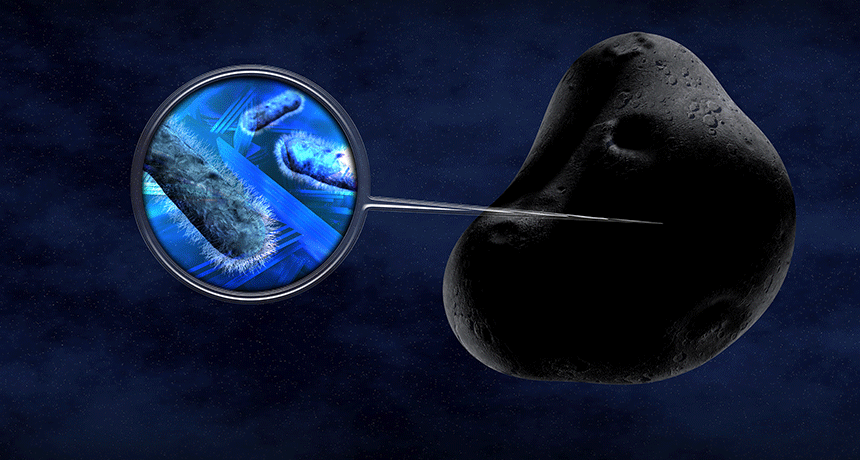 Space
SpaceMost Americans would welcome a microbial E.T.
People are more likely to welcome than be scared by new evidence pointing to extraterrestrial life, Americans report — at least if the E.T.’s are tiny.
-
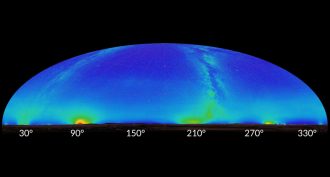 Earth
EarthPollution from new technologies threatens astronomy
Pollution from new technologies will make it harder to observe the night sky, astronomers say.
By Dan Garisto -
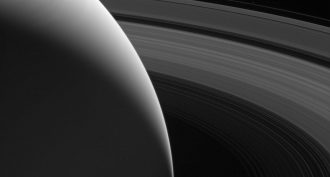 Planets
PlanetsSaturn’s rings might be shredded moons
Final data from the Cassini spacecraft put a mass and a date of birth on the gas giant’s iconic rings.
-
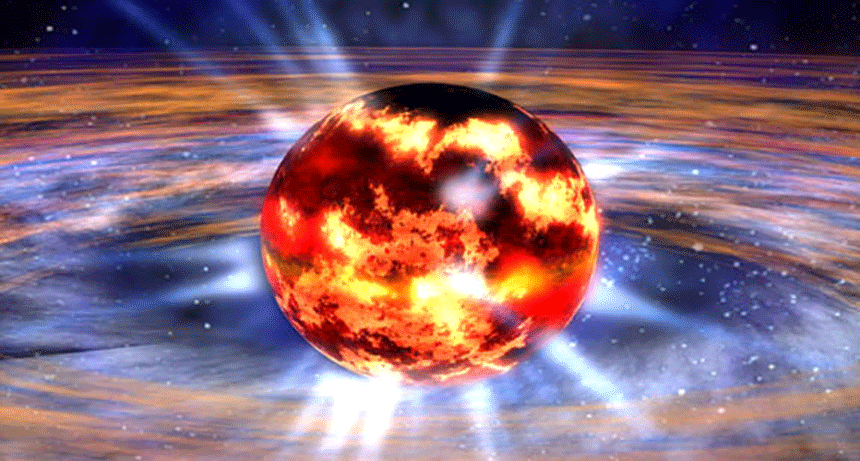 Space
SpaceScientists Say: Neutron star
When large, ancient stars die, they explode. But they don’t disappear. The remnants become incredibly dense neutron stars.
-
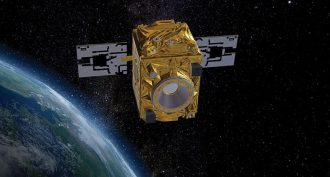 Physics
PhysicsMajor gravity experiment recreated aboard a satellite
A spacecraft was used to “drop” two objects and test their rate of fall. The new, super-precise findings confirm objects will fall at the same rate (in the absence of air resistance) — and that when it comes defining the effects of gravity, Einstein got it right.
-
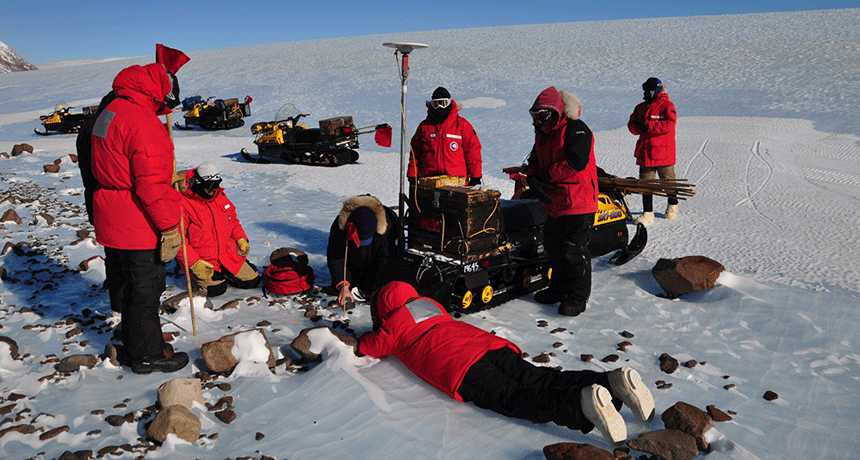 Earth
EarthHot on the trail of Antarctic meteorites
For intrepid scientists, spotting meteorites against Antarctica’s dazzling whiteness is easy. Then what?
By Beth Geiger